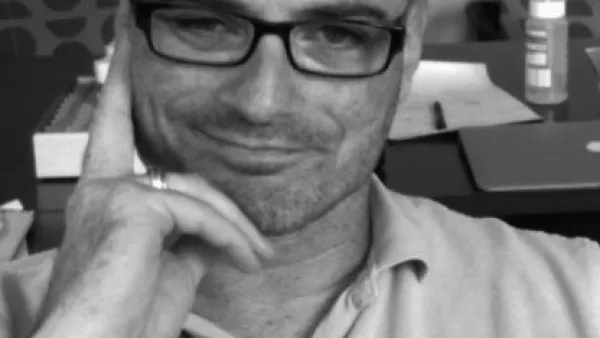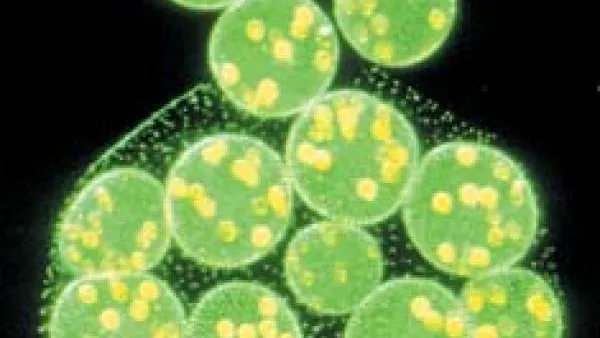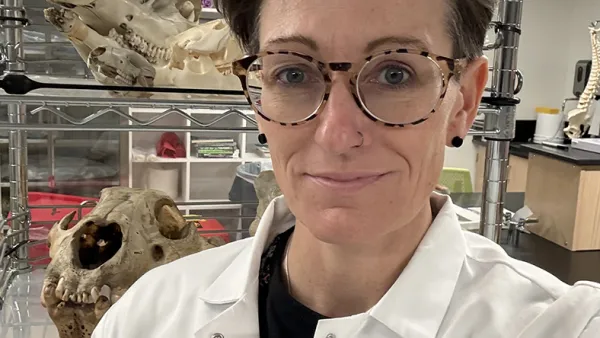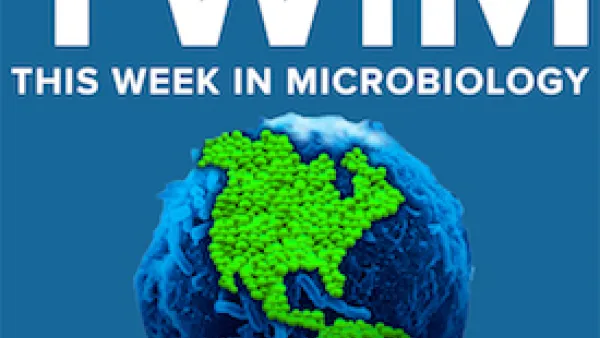Washington University in St. Louis alumna, scientist, and now author, Beronda Montgomery, Class of 1994, shares how plants have taught her to think better about people in our communities.
Take a moment to reflect on the plant in your home that is not thriving. How do you care for it? Do you ask yourself, what does it need from me?
You probably start by evaluating the plant’s environment, giving it tap water, bottled water, more sun, or a cool place away from the hot sun. Nothing you do helps, and you give the plant to a friend with a green thumb.
“The last thing you say is that the plant is incapable of growth, and you throw it out,” Beronda Montgomery, AB ’94 (biology), said to an audience at a Museum of Contemporary Art Detroit event in 2017. She has been sharing this metaphor for years to encourage change in our response to struggling individuals in our communities.
“Our first response is that there is a deficit in the person. How do we fix the person? I try to get people to think about their relationship with plants to get us to think better of the individuals in our environment,” said the now very outspoken Montgomery. She was a focused and thoughtful Washington University undergraduate student, perceived as quiet.
If you are finding yourself in awe of her message, you are in good company. “My first thought was, what a beautiful insight into how humans can nurture growth in others and ourselves,” said Rachel Penczykowski, assistant professor of biology in Arts & Sciences.

“I write about how we can support each other in terms of mentoring and leadership by showing examples of how these principles play out in plant life and plant communities,” said Montgomery, who is excited to share her new book.
She hopes that anyone who enjoys plants and the outdoors will read it.
A place in community
Montgomery is a Michigan State University (MSU) Foundation Professor in the Departments of Biochemistry & Molecular Biology and of Microbiology & Molecular Genetics. She studies plants and cyanobacteria and how these photosynthetic organisms respond to light. Her lab group has published extensively on this topic.
“We have published some amazing papers. But the most impactful part of my life has been engaging with my communities by translating lessons from science to metaphors for living,” said Montgomery.
Those communities are engaging back.
“It is incredible to contemplate how the greater public—non-biologists and non-scientists—have engaged with her message. She has over 12,200 Twitter followers and uses her platform to promote her work, raise up and encourage others, and advocate for change. In doing so, she provides a model for Black men and women in Botany, Biology and even outside of science,” said Liz Haswell, professor of biology in Arts & Sciences. Haswell and Ivan Baxter, associate member of the Danforth Plant Science Center, hosted Montgomery on season three of their podcast, Taproot.
Last summer, Montgomery participated in the founding committee of the #BlackBotanistsWeek, a social media celebration of Black botanists and their work. When working with students, some as young as in high school, she offered her platform to spread the word to the communities she had access to while noting this project was not about her.
“I'm an individual who exists in a community. I have to advance my path, but I want to do that in a way that opens opportunities for others as well,” explained Montgomery, who uses her platform and voice to invite others to get involved in community.
When invited to speak or write, she is thoughtful about yielding the opportunity to individuals early in their career who may need it to advance.
“I try to be a responsible and compassionate citizen in whatever community I find myself in,” concluded Montgomery.
Plants as mentors
The years Montgomery spent deeply invested in learning about plants were critical for the work she is doing in engaging with communities.
It was an experiment in the lab years ago that made an impression on Montgomery. Her lab group grew two essentially identical plants in the same conditions - same soil, water, and nutrients. Except that one plant had access to light and thrived. The other plant did not have light and struggled.

darkness (left) or in continuous white light (right).
Publihsed in Montgomery Front. Plant Sci., 11 April 2016.
“I started to ask how plant scientists, myself included, are using this knowledge to think about two students or colleagues who show up with basically equal aptitude.”
“Are we looking at the importance of the environment for cultivating and promoting that aptitude?” explained Montgomery, who is concerned about individuals from marginalized or minority backgrounds and the assumptions made about their capabilities without questioning whether the environment is best adapted to support them.
While learning about these plants, she also started learning from these plants. The subjects she studies became her mentors, teaching her how to help others in her community thrive.
Montgomery has defined her mentoring philosophy, publishing it to engage the scientific community in conversation. She expects plants in her home, office, and lab to thrive – that is, if they are not part of an experimental group. Learning from her relationship with plants, she extends those expectations to her mentees.
“When a student or colleague enters my space, I meet them with the expectation that they will succeed in a way that honors who they are and what their values are as people,” said Montgomery.
“When a student or colleague enters my space, I meet them with the expectation that they will succeed in a way that honors who they are and what their values are as people,” said Montgomery.
This is no small undertaking in an academic system where mentor and mentee successes are intertwined. Such that, when mentee and mentor values and goals do not match, conflict may arise.
"Evidence in the literature shows the best mentoring asks mentees what their goals are. In service to their goals, the mentor makes contributions towards their success,” said Montgomery.
Supporting mentees who pursue different careers is an important step to productive mentoring, explained Montgomery, who as a John B Ervin Scholar at Washington University focused on becoming a patent lawyer until she realized the other pre-law scholars were more excited about the idea of learning about legal briefs than she was.
Her research experiences as a psychology minor at Washington University introduced her to hypothesis-driven science. An ethnobotany course led by Professor Emerita of Biology Memory Elvin-Lewis and her late husband, former Professor of Biology Walter Lewis, revealed to her that biology is not just a science - it has deep cultural roots.
Excited about innovation and research, she took a position as a research technician in her hometown of Little Rock, Arkansas. She applied to and got accepted into a graduate program at the University of California, Davis; earned her doctorate; and found her happiness.
“Now I want to support my mentees in whatever that thing is that will give them the same level of happiness I have as a professor. I no longer assume that it will look like my happiness,” said Montgomery.
The Department of Biology in Arts & Sciences will be hosting Beronda Montgomery later this year (November 2021) for a seminar and book signing. To learn more about Montgomery, visit her website.




